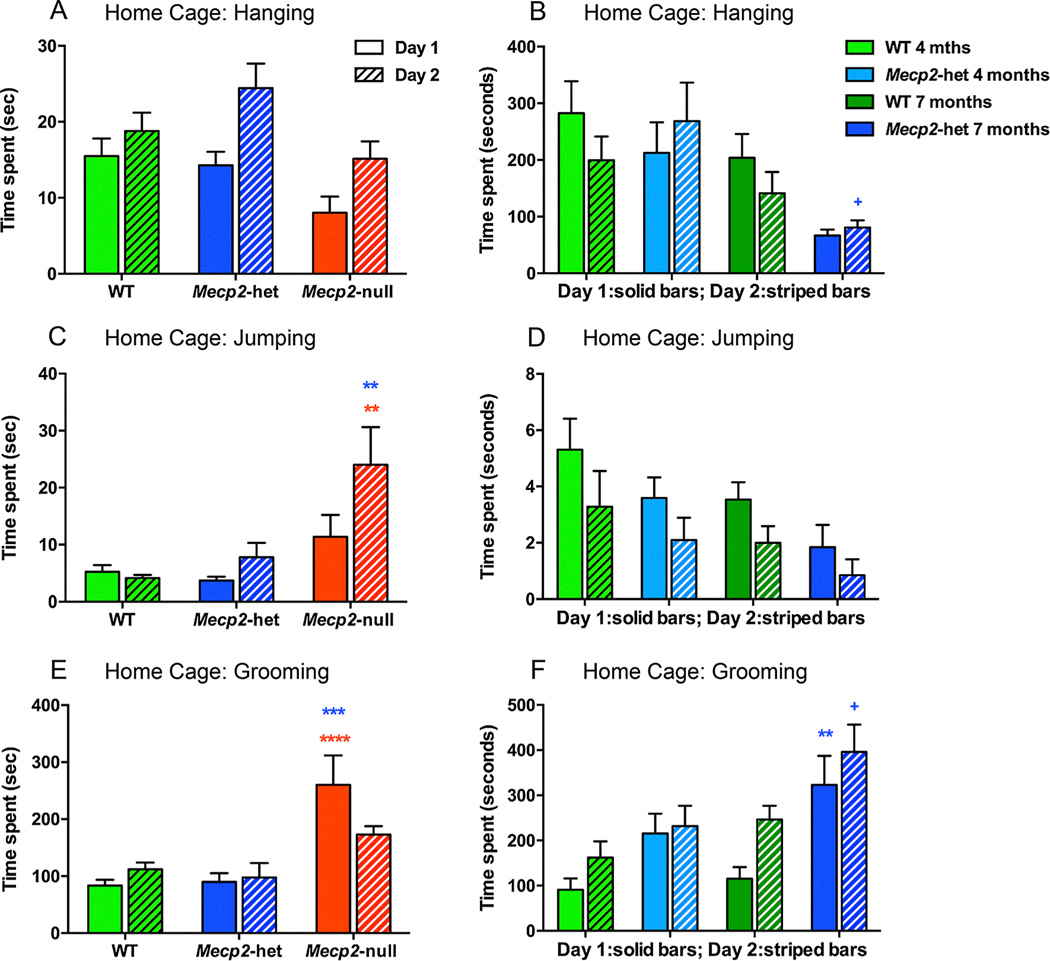Fig. 5.
Home cage behaviors including hanging, jumping and grooming were altered in juvenile Mecp2-heterozygous and Mecp2-null mice aged 5–7 weeks of age and in Mecp2-heterozygous mice that were 4 or 7 months of age. (A) Mecp2-null mice that were 5–7 weeks old (n = 8) spent less time hanging than WT mice (n = 14). (B) Likewise, 7 months old Mecp2-het mice (n = 8) spent less time hanging than 4 months old Mecp2-het mice (n = 8, blue + p < 0.05). (C) Juvenile Mecp2-null mice spent more time jumping than WT (red **) and Mecp2-het mice (blue**). (D) While hanging behavior diminished from 4 to 7 months in age and was less in Mecp2-het mice than WT, there were not significant post hoc p values. (E) Juvenile Mecp2-null mice spent more time grooming than WT (red ****) and Mecp2-het mice (blue***).(F) Similarly, 7 months old Mecp2-het mice spent more time grooming than 4 months old Mecp2-het mice (n = 8, blue + p < 0.05) and than 7 months old WT mice (blue**). *p < 0.05, **p < 0.01, ***p < 0.001, ****p < 0.0001.

